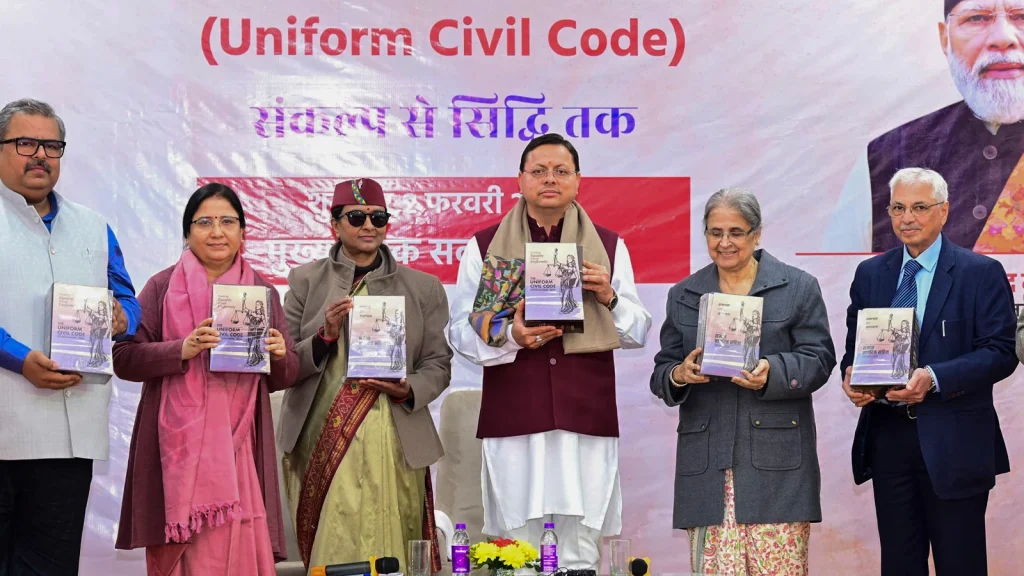Context:
The Union Home Minister recently stated in the Rajya Sabha that the ruling party would implement the Uniform Civil Code (UCC) in every state ruled by it.
More on the News
- The Home Minister pointed to the initiative of the Uttarakhand government to introduce a UCC in the state as a model.
- He argued that in a secular nation, there should be a common law for all religious communities.
What is the Uniform Civil Code (UCC)

- UCC implies the formulation of one law for India, which would be applicable to all religious communities in matters such as marriage, divorce, inheritance, adoption.
- Article 44 of the Constitution states: “The State shall endeavour to secure for the citizens a uniform civil code throughout the territory of India.”
- Article 44 comes under the Directive Principles of State Policy (Part IV) whose provisions are non-justiciable, i.e., not enforceable by the court.
Present Status of UCC in India
Currently, Goa is the only state in India with a UCC.
- The Goa Civil Code has its origins in the Portuguese Civil Code of 1867.
The Uttarakhand assembly passed the Uniform Civil Code (UCC) 2024 Bill in February, 2024.
- Uttarakhand will become the first Indian state to implement a UCC post-independence.
- The law however exempts tribal communities from its purview.
Related Supreme Court Cases
- Shah Bano case (1985): SC upheld the right of a Muslim woman to maintenance under Section 125 of CrPC. It expressed regret that Article 44 remained a ‘dead letter’ and called on the government to bring UCC.
- Sarla Mudgal case (1995): SC observed that Article 44 is based on the idea of a distinction between religion and personal law, and so a UCC does not violate the religious freedom guaranteed by Articles 25, 26, and 27.
- Shabnam Hashmi case (2014): SC ruled that any person, irrespective of religion, can adopt a child under the Juvenile Justice (Care and Protection of Children) Act, 2000.
- Shayara Bano case (2017): SC declared the practice of triple talaq unconstitutional and reignited the debate on UCC.

